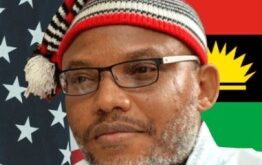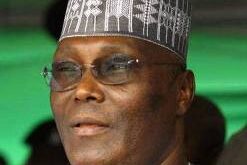By Young Erhiurhoro, Warri
The 2021 local government elections in Delta State is less than a year from now, and the Delta State Independent Electoral Commission (DSIEC) is doing the needful to create a peaceful atmosphere for the conduct of hitch-free local government elections across the state.
Going by this arrangement and in accordance to the provisions in the Act establishing the DSIEC, the electoral body is empowered to create or delineate new electoral wards from the existing ones in the local government areas or constituencies in every ten years. To carry out this mandate, DSIEC has recently advertised in newspapers, television and radio, for communities in the state to apply for the creation of wards before the local government elections come up.
In a statement signed by its chairman, Chief (Barr) Mike Ogbodu, the commission listed the various requirements and conditions needed to enable such communities apply. Requirements such as the 1991 census population projected figures, map of the proposed electoral ward, evidence of social amenities/landmarks in the area, voting strength at the last local government elections, figures of registered eligible voters in the area etc.
The delineation or creation of new wards and constituencies in the country is the statutory duty of INEC, and DSIEC, as in the case of Delta State. Other states have their own electoral bodies. But in the long run, the questions so many Deltans are asking on this exercise, based on past experiences, is: How fair will DSIEC handle this exercise without the influence of political leaders in the state? Will the exercise not be politicised or heavily influenced by the state government, or persons in government, as it happened in the last ward delineation exercise in 2004?
To answer the above questions, let’s look at some of the ugly scenarios that played out during the 2004 ward creation exercise in the state.
In 2003, similar advertisements for application for the creation of wards were placed by DSIEC as they are now, and many communities hurriedly applied with belief and hope. In fact, communities spent as much as over a hundred thousand naira in some cases to submit only the applications, other financial resources spent for monitoring and follow up were not added. At the end, some communities were short-changed and denied, even though they met the criteria set by DSIEC.
Then, it was like sharing federal allocation at the Federal Executive Council meeting, chaired by the president of the country. Individuals in government cornered the new wards to their own communities, ostensibly to satisfy their personal interest, greed and avarice; knowing fully well that their communities were not qualified to benefit from the exercise given the guidelines set by DSIEC.
In fact, they created the wards and shared them amongst top government officials in the three arms of government, viz: legislature, executive and judiciary. This was the practical picture of the 2004 ward creation exercise as insinuated by those that were short-changed and denied.
To be sincere, this didn’t go down well with many people in the state at that time, especially the common populace. According to many who shared their views, the whole exercise was characterized with fraud, oppression and injustice.
To corroborate the above views, a notable and prominent politician from Unenurhie community in Evwreni Ward (08) who didn’t want his name in print told our correspondent that, “For instance, in Ughelli North LGA under Constituency 1, there are four major communities/kingdoms making the constituency. They are Orogun, Agbarha, Ogor and Evwreni. During the 2004 ward creation, Orogun had three additional wards, bringing their total wards to five. Agbarha had two, Ogor and Evwreni had none. This was the sharing formula the constituency leaders used in sharing the newly created wards. This was because the representatives of the constituency in both state and Federal Government at that time were mainly from Orogun and Agbarha communities. Is this not an outright political marginalization?”
Still speaking on the issue, the respected chief said, “Evwreni Ward has two major communities of Evwreni and Unenurhie, and other adjoining villages like Erhuruigbedi village, Ivwrorha village, Ivwrorode village and Onuvworoma village. All these villages I mentioned belonged to Unenurhie community and they are naturally situated on the side of Unenurhie community. The forebears of Evwreni and Unenurhie communities according to our folk history are brothers from the same roots. But the two communities are well demarcated by natural boundaries and landmarks like rivers, forests and farmlands.
“In this case, Unenurhie as an autonomous community has an estimated population of about ten thousand people, excluding children. As a political entity, it has four units in the ward before Evwreni people again moved one to their community, leaving behind only three units at the moment. To worsen the political situation of the community, since when Evwreni Ward was created from the old Uwheru Ward till date, no Unenurhie man or woman has been voted as a councilor to represent the ward. This is a great political injustice and oppression to us in a modern democratic government like ours,” he said.
Speaking in the same vein, a former president general of the community who spoke in anonymity said, “As a result of this political bondage, the Unenurhie people took it upon themselves to apply during the 2004 ward creation exercise. Yet, in all the money we spent, we were still denied having our own separate and independent ward from the one of Evwreni. Even as we speak, the Unenurhie people are still reluctantly walking through this political desert of marginalization and oppression in the hands of the Evwreni people because we have nobody to speak for us in the government, both at state or federal level. At the party level too, the only position the Evwreni man will allow us to occupy is either a vice or assistant position. They never allowed us to mount the position of the chairman of a party. We are always made the tail and not the head in Evwreni politics. Such is our political woes in the ward. In fact, there’s no sense of belonging since the ward was created.
“Yet, we the Unenurhie people are not tired to seek for our political freedom and independence especially now that Nigeria is under democracy. In this regard, we have again applied to DSIEC recently as advertised by the commission to have a ward of our own if truly we are legitimate citizens of this country and Deltans by origin. Unenurhie community with four adjoining villages is more than qualified to have a ward of their own, without joining them to any part of Evwreni Ward. This is a clarion call to the constituency leaders to rise up to their duties and correct this political anomaly and sabotage before the coming local government elections,” he said.
The same way Unenurhie people narrated their bitter experiences in the political making of Evwreni Ward, I also believe that so many communities suffered a similar fate during the 2004 ward creation exercise in the state. Many communities across the state were also denied of their political rights because of the wrong use of political tools in the hands of our political leaders in government. Almost in all the constituencies making the entire state, people have one or more bitter experiences to share over the 2004 ward creation exercise.
However, in order to balance this report, one of the directors in the board of the DSIEC who spoke to our correspondent on phone on conditions of anonymity said, “I have been working here for some time now, until I now became a director in the board. Like the question you asked about the 2004 ward creation exercise in the state, I can tell you that as a constituted body with laid down rules and regulations of administration, we are never biased in our programmes or activities.
“In the case of the 2004 ward creation exercise, we tried as much as possible to follow the due process of creating the wards for those communities that were qualified in the state. There was never a time when as a body we decided to share wards for top government officials in the state.
“Coming back to this present one, truly DSIEC has recently placed advertisements for application for ward creation from communities. I want to urge communities that meet up the requirements to apply now. There shall be no oppression and injustice in our selection process. As a body, we are being guided by the law. We can’t do otherwise. Any community that is qualified shall not be short-changed as many are insinuating right now. We will follow the laws and try to maintain sanity and integrity in all the processes leading to the final stage of approval,” he said.
Conclusively, another ward creation exercise by DSIEC is here again. The commission is again calling on communities in the state to summit applications based on approved requirements and conditions. To my understanding, so many communities have already submitted applications for the exercise.
According to the law, the bulk of the job in this exercise lies in the hands of DSIEC and the state legislature. In this case, DSIEC as a constituted body should stand on a neutral ground to select those communities that are qualified to benefit from the exercise by conscientiously following the laid down requirements and conditions as prerequisites or standard for qualification and creation. As a matter of importance, the commission shouldn’t be influenced this time around by the sitting government like it happened during the 2004 ‘hit and run’ political jamboree. Obviously, some communities that had bitter experiences in time past may even lose trust and hope in this very one as the exercise is going to be conducted by the same almighty DSIEC.
Secondly, without being told, the objective and purpose of the state government to embark on this exercise is to create a kind of balance and equity in the political system of the local government administration by making all the local government areas in the state have equal numbers of electoral wards. To achieve this, DSIEC and the state government must consider those communities placed at disadvantaged condition like the case of Unenurhie community in the last ward creation exercise. Those poor and rural communities across the state must be considered this time around by DSIEC and the state government to also make them feel the impact of the government and equally participate in the art of governance in the state.
What I’m saying in essence is that, wards should be created for such communities to carry them along politically. The ball is now in the court of DSIEC. Deltans in particular and Nigerians in general, including the entire globe are watching how well and fair DSIEC would play the ball this time around to avoid a repeat of such ugly anomalies. A word is enough for the wise!
Young Erhiurhoro;Kjc, is a reporter and a member of the Urhobo Historical Society
 PH Mundial – Port Harcourt Online Newspaper News Across The Region
PH Mundial – Port Harcourt Online Newspaper News Across The Region




